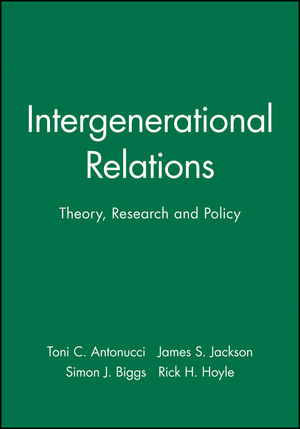Intergenerational Relations: Theory, Research and PolicyISBN: 978-1-4051-8584-4
Paperback
228 pages
January 2008, Wiley-Blackwell
 |
||||||
Changing times mean that people are living longer and in more complex families. Changes include greater geographical mobility, increased racial and ethnic diversity, new patterns of immigration and identity reformulation, and changing work and family roles. With governmental resources decreasing, it is especially important to understand the changing nature of multigenerational family structures, functioning, and roles in individual well-being in order to maximize the effectiveness of informal and formal supports available. This issue examines factors that facilitate anticipating, understanding, and designing support programs to meet the challenges facing individuals in all generation positions, families, and communities in the U.S. and around the world.



